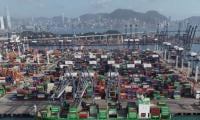An historic breakthrough
Unlike the United States and its bullying diplomacy, China has been gradually emerging as a superpower with predominantly reconciliatory and peace-centric diplomacy.
For decades, peace and stability in the Middle East has been under severe pressure due to the simmering rivalry between Iran and Saudi Arabia, the two major oil-producing competitors in the region. Both have finally agreed to restore diplomatic relations and reopen their respective embassies after a seven-year hiatus.
This agreement was reached following discussions brokered by China in Beijing. According to a joint statement, the talks led to an agreement to resume diplomatic relations and reopen embassies within two months. Once this is put into action, the foreign ministers of the two nations will convene to make arrangements for the exchange of ambassadors. Furthermore, it has been agreed that both countries have committed to respecting each other's state sovereignty and refraining from interfering in each other's internal affairs.
Another positive aspect is that Riyadh and Tehran have agreed to activate a security cooperation agreement signed in 2001. The political rivalry between predominantly Shia Iran and Sunni Saudi Arabia has been the dominant force in Middle Eastern politics in recent years, its impact felt in other neighbouring countries such as Syria, Iraq, Lebanon, and Yemen. Although talks between Saudi Arabia and Iran regarding possible reconciliation have been ongoing for years, primarily in Iraq, the agreement was ultimately reached in China.
For the past few months, Beijing has intensified its diplomatic activities in the Middle East with a thrust on extinguishing the hotspot there and bringing lasting peace – a prerequisite for economic development. Last month, Iranian President Ebrahim Raisi made a visit to Beijing, while Chinese President Xi Jinping was in Riyadh in December to attend meetings with oil-rich Gulf Arab nations that are critical to China's energy supplies.
Both the high-profile visits were part of China’s diplomatic venture to bring the two neighbours towards a negotiated settlement over their chronic contentious issues. It is in China’s inherent interest to leverage its position with both Tehran and Riyadh to balance their relations.
The announcement also represents a diplomatic triumph for China in the Gulf region, which has traditionally been seen as under the influence of the US. Iranian National Security Chief Ali Shamkhani, Saudi National Security Council Adviser Mosaed Bin Mohammad Al-Aiban, and China's top diplomat Wang Yi had been engaged in talks in Beijing since March 6.
Last month, President Xi Jinping presented a 12-point position paper on the Ukraine conflict, which is a blueprint for the resolution of all the conflicts through dialogue and reconciliation. Unlike the US, which has become more belligerent over the last few decades in the domain of foreign policy, China is consciously promoting the concept of negotiations and table talk as the main tool to approach the conflicts and differences among the nations.
The agreement in Beijing is of great importance to China and signifies its emergence as a key diplomatic and strategic player in the Gulf region. China's distinct ability to mediate relations between Tehran and Riyadh, a role that was previously held by European countries, if not the US, and this is unlikely to be well-received by Washington. In December, Chinese President Xi Jinping received an elaborate welcome in Riyadh as part of a visit that brought together 14 Arab heads of state. This occurred just a few months after a relatively unremarkable meeting with US President Joe Biden, whose relationship with Saudi Arabia has been strained.
China’s emerging role as a trustworthy mediator is being increasingly acknowledged by the outside world and is counterbalancing the bullying diplomacy of the US and the West. It also indicates that China is now adopting a more assertive diplomatic stance on such matters where the Western capitals have failed to deliver peace such as the Ukraine conflict. This is primarily driven by China's interests in the region.
China has succeeded in bringing together two important stakeholders – one with regional significance and the other with economic significance – with the goal of easing tensions in the region and promoting increased economic collaboration with both parties.
As China increases its diplomatic engagement in the Arab world, Washington appears to be fairly on the backfoot at the moment and may resort to aggressive diplomatic efforts for some sort of ‘diplomatic engagements’ between Israel and Saudi Arabia to muffle the impact of China’s brokerage in the Iran-Saudi deal. John Kirby, the White House national security spokesperson, stated that Saudi Arabia had kept the US informed about the talks in Beijing and the US supported the process as it promotes an end to the conflict in Yemen.
“This is not about China. We support any effort to de-escalate tensions in the region. We think that's in our interests, and it's something that we worked on through our own effective combination of deterrence and diplomacy”.
Nonetheless, China has very effectively utilized its diplomatic clout to ensure the return of peace in the Middle East, which augurs well for overall peace and stability across the globe. We may see similar positive involvement by Beijing in other simmering flashpoints that are threatening global peace.
The writer is a freelance contributor.
-
 AI Superintelligence Race: Meta And Microsoft Back Rival Visions—Who Will Win?
AI Superintelligence Race: Meta And Microsoft Back Rival Visions—Who Will Win? -
 Chatbots Push Users Into ‘delusional Spirals,’ Experts Warn
Chatbots Push Users Into ‘delusional Spirals,’ Experts Warn -
 Economist Slams AI Doom Predictions, ‘replacing Humans Is Not Innovation’
Economist Slams AI Doom Predictions, ‘replacing Humans Is Not Innovation’ -
 KATSEYE's Manon Bannerman Takes Break From Group For Personal Reasons
KATSEYE's Manon Bannerman Takes Break From Group For Personal Reasons -
 Prince Harry's Reaction On 'disgraced' Uncle Andrew Arrest Revealed
Prince Harry's Reaction On 'disgraced' Uncle Andrew Arrest Revealed -
 Eric Dane’s Friends Initiate GoFundMe To 'support' His Two Daughters After His Death At 53
Eric Dane’s Friends Initiate GoFundMe To 'support' His Two Daughters After His Death At 53 -
 Internet Erupts After Candace Owens Claims Elon Musk And Sam Altman Are ‘not Human’
Internet Erupts After Candace Owens Claims Elon Musk And Sam Altman Are ‘not Human’ -
 Will Princess Beatrice, Eugenie Stay In Contact With Andrew? Source Speaks Out
Will Princess Beatrice, Eugenie Stay In Contact With Andrew? Source Speaks Out -
 ‘AI Revolution Is Coming Fast & US Has No Clue,’ Bernie Sanders Warns Of Speed Of Disruption
‘AI Revolution Is Coming Fast & US Has No Clue,’ Bernie Sanders Warns Of Speed Of Disruption -
 Hong Kong Touts Stability,unique Trade Advantages As Trump’s Global Tariff Sparks Market Volatility
Hong Kong Touts Stability,unique Trade Advantages As Trump’s Global Tariff Sparks Market Volatility -
 ‘Miracle On Ice’ Redux? US Men Chase First Olympic Hockey Gold In 46 Years Against Canada
‘Miracle On Ice’ Redux? US Men Chase First Olympic Hockey Gold In 46 Years Against Canada -
 Friedrich Merz Heads To China For High Stakes Talks In An Effort To Reset Strained Trade Relations
Friedrich Merz Heads To China For High Stakes Talks In An Effort To Reset Strained Trade Relations -
 Astronauts Face Life Threatening Risk On Boeing Starliner, NASA Says
Astronauts Face Life Threatening Risk On Boeing Starliner, NASA Says -
 Hailey Bieber Reveals How Having Ovarian Cysts Is 'never Fun'
Hailey Bieber Reveals How Having Ovarian Cysts Is 'never Fun' -
 Kayla Nicole Looks Back On Travis Kelce Split, Calls It ‘right Person, Wrong Time’
Kayla Nicole Looks Back On Travis Kelce Split, Calls It ‘right Person, Wrong Time’ -
 Prince William And Kate Middleton Extend Support Message After Curling Team Reaches Olympic Gold Final
Prince William And Kate Middleton Extend Support Message After Curling Team Reaches Olympic Gold Final



